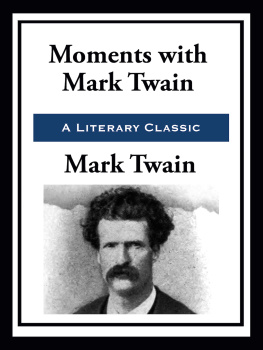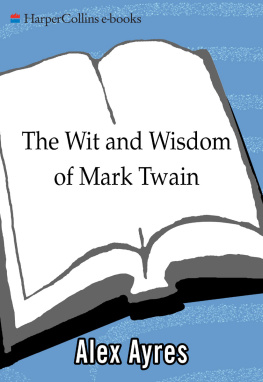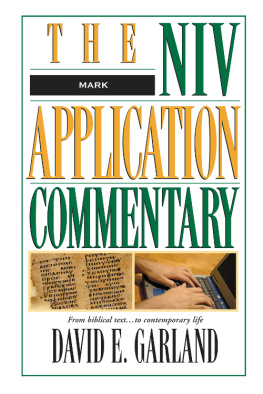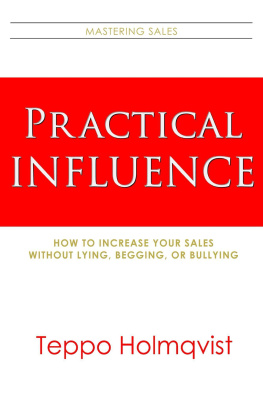Mark Teppo - The Mongoliad: Book Two
Here you can read online Mark Teppo - The Mongoliad: Book Two full text of the book (entire story) in english for free. Download pdf and epub, get meaning, cover and reviews about this ebook. genre: Science fiction. Description of the work, (preface) as well as reviews are available. Best literature library LitArk.com created for fans of good reading and offers a wide selection of genres:
Romance novel
Science fiction
Adventure
Detective
Science
History
Home and family
Prose
Art
Politics
Computer
Non-fiction
Religion
Business
Children
Humor
Choose a favorite category and find really read worthwhile books. Enjoy immersion in the world of imagination, feel the emotions of the characters or learn something new for yourself, make an fascinating discovery.

- Book:The Mongoliad: Book Two
- Author:
- Genre:
- Rating:5 / 5
- Favourites:Add to favourites
- Your mark:
- 100
- 1
- 2
- 3
- 4
- 5
The Mongoliad: Book Two: summary, description and annotation
We offer to read an annotation, description, summary or preface (depends on what the author of the book "The Mongoliad: Book Two" wrote himself). If you haven't found the necessary information about the book — write in the comments, we will try to find it.
The Mongoliad: Book Two — read online for free the complete book (whole text) full work
Below is the text of the book, divided by pages. System saving the place of the last page read, allows you to conveniently read the book "The Mongoliad: Book Two" online for free, without having to search again every time where you left off. Put a bookmark, and you can go to the page where you finished reading at any time.
Font size:
Interval:
Bookmark:
Mark Teppo
The Mongoliad: Book Two
1
Rome was not the first city Ferenc had ever seen. As a child, he had lived in Buda, where the clustered buildings were strewn like squat boulders along the banks of the slow-moving Danube. His memories, though, were but vague shapes in a fog compared to the reality laid out before his eyes.
Rome lay below them, wrapping itself around the River Tiber like a jealous lover. The light was strange here too. It was brighter and brisker than his memories of Buda, as if the sky over the city had cracked open and scattered celestial sparks upon the peaked rooftops, creating a dazzling spray of illumination.
Ferenc glanced at the priest slumped on the horse next to him. He was draped over his horses neck, his knuckles intertwined in the animals mane so tightly they were white. The light from the city was reflected in his eyes, making him look almost blind. A ropy strand of spit quivered in his tangled beard.
His fever was back. The disease had gone into hiding deep within the priest a week ago, and then he had insisted they ride farther and harder each day. Ferenc had tried to hold him back, knowing this relief from the burning infection was temporary. He had been right: this morning, it had returned. The skin around the wound on the mans hip was still angry and red, even though the gash was closing. If it closed all the way, it would seal the fever inside, and he would never heal.
With a groan that made Ferenc shudder, the priest pushed himself upright. His right foot slipped from the stirrup. He grabbed at the horses mane to keep from falling, and the animal tossed its neck back, as if protesting his clumsiness. Father Rodrigo shook his head, and the spit flew from his beard. Rome, he croaked. We made it.
When he looked at Ferenc, his eyes were still filled with the wild, reflected light from the city below. The young hunter made the sign of the cross on his chest, as the priest had taught him, and whispered the holy words that would protect him from possession. His mother had taught him other charms against evil spirits-the warding eye, the sign of the forest-but he didnt want to enrage the priest. He didnt want the madness in the priest to know he was afraid.
Ferenc had come to realize the strength of the priests magic. Father Rodrigo had one sign he used for everything. He didnt have to remember the prayers to the wind or the rain or the spirits living in the forests. He didnt have to know the hymns to sing before and after a hunt. He didnt have to memorize the glyphs and sigils used by mothers to protect their houses and children. The priest had one sign only-such a simple gesture, so easily taught to children, so easily remembered-and one god to call upon. Followers of such magic asked only for strength and guidance; why they needed either was left unspoken. God knows, the priest had assured Ferenc, God knows everything in your soul.
Yes, the priest said, crossing himself as Ferenc did. Praise His mercy. He returned his attention to the city. He has carried us this far, and He will only need to sustain us a short while longer.
The last few days had been filled with the same sort of fear that had chased them away from Mohi. An army lay around the hills of Rome, a discordant mass of unorganized men that had none of the terrifying precision of the Mongols but had been foreign occupiers nonetheless. The two companions had fallen into old routines-traveling by night, moving slowly across unmarked terrain, avoiding all contact-and only this morning had they sensed they were through the cordon of soldiers.
The priest swayed, and Ferenc again feared Father Rodrigo would fall. But he caught himself-somehow-with a hand across the neck of his horse and his head thrown back in a wild, wordless plea to Heaven.
Father Rodrigos horse, used to hours and days of the priest as near deadweight, seemed spooked at his unexpected shifting in the saddle and sidestepped irritably. If his horse grew any more agitated, Father Rodrigo would surely be thrown. The priest claimed his god watched over fools and idiots, but hed also said, Thou shalt not tempt the Lord thy God. Ferenc had seen enough men thrown from their horses on the plain near Mohi to know what would happen. He nudged his mount toward the priests and leaned over, patting the horses flank. Sweaty-and now twitchy. Which made his own exhausted mount suddenly twitchy too. Theyd been pushing the horses too hard, and the animals were becoming choleric. It wouldnt take much for both of them to bolt.
Me too, Ferenc thought. He settled his weight in his saddle, quieting his own horse with a firm hand on the shoulder and soft words. They had gotten these horses just inland from Venice, in the flat plains of the western Veneto; they were spindly-legged nags, not at all suitable for climbing mountains. They didnt understand Ferencs Magyar, but they understood his voice. They knew his tone. As he spoke to them, they calmed.
Father Rodrigo hadnt noticed the moment of unrest. The city held him enraptured. There, he said, pointing. Santa Maria Maggiore. That tall spire there. That is where I received my confirmation. He expelled a sharp laugh. Twenty years now, Ive been gone for twenty years. He moved his hand slightly, referencing another landmark that Ferenc could not separate out from the forest of towers and domes. Over there is the Basilica of St. Peters. Across the river, Ferenc. Do you see the house of holy light?
But the light is shining on all of them, Ferenc thought, although he kept his tongue still. The priest seemed to be shaking off some of the malaise that had bound his bones. For a while now, perhaps as long as it would take them to descend this hill and join the flow of travelers entering the city, Father Rodrigo might remain lucid. Perhaps even long enough for them to reach the river. Perhaps.
Come, the priest said, rapping his heels against his horse. We have a little farther to travel. The horse snorted and picked its way downslope, toward the broad, paved track of the road.
Ferenc remained for a moment, idly rubbing the itching skin on the front of his left shoulder. Most of their nicks and cuts from last spring had healed, nothing more than thin, pink lines of new skin on their sun-darkened faces and arms. The most grievous of his wounds had been an arrow to the shoulder, and it was the last to heal. Fortunately, the enemy archer had been very strong and Ferencs gambeson had not been very thick. The arrowhead had gone through, missing the bone; it had been simple to break the shaft and draw the two pieces out. Simple, yes, but taking the arrow out had hurt worse than getting shot. At least the wound had been clean-easily dressed and cared for.
Hed also cleaned and bound Father Rodrigos wounds, and cleaned and rebound them often during their journey from the death fields at Mohi. But the Fathers infection ran too deep for Ferencs skill. They needed to reach the sanctuary of which Father Rodrigo spoke so longingly. Here they would find more priests and also, Ferenc assumed, healers-men who could save Father Rodrigo both from his infection and his madness. Ferenc did not quite understand what was in this great basilica of Father Rodrigos-this house of holy light-but he imagined it as a gleaming fortress of strength, beauty, and an omnipotent magic born of pure faith.
Ferenc nudged his horse forward, following Father Rodrigos. As they wound their way toward the bottom of the narrow hill, the sounds of civilization rose up to meet his ears: voices calling out, metal ringing against metal, the groan and creak of an old wagon as it rumbled down the dusty track, and in the distance, the steadily growing buzz of the city. They had avoided settled areas for so long that all these noises, the cacophony of city life, created an undifferentiated tumult in Ferencs ears. It reminded him not of his childhood memories of Buda but of the sound that had swept across the fields of Mohi shortly before dawn on that ghastly spring morning months ago. That crackling noise of mens fear. The sound of thousands of men babbling to themselves as they waited for their turn to die.
Font size:
Interval:
Bookmark:
Similar books «The Mongoliad: Book Two»
Look at similar books to The Mongoliad: Book Two. We have selected literature similar in name and meaning in the hope of providing readers with more options to find new, interesting, not yet read works.
Discussion, reviews of the book The Mongoliad: Book Two and just readers' own opinions. Leave your comments, write what you think about the work, its meaning or the main characters. Specify what exactly you liked and what you didn't like, and why you think so.





